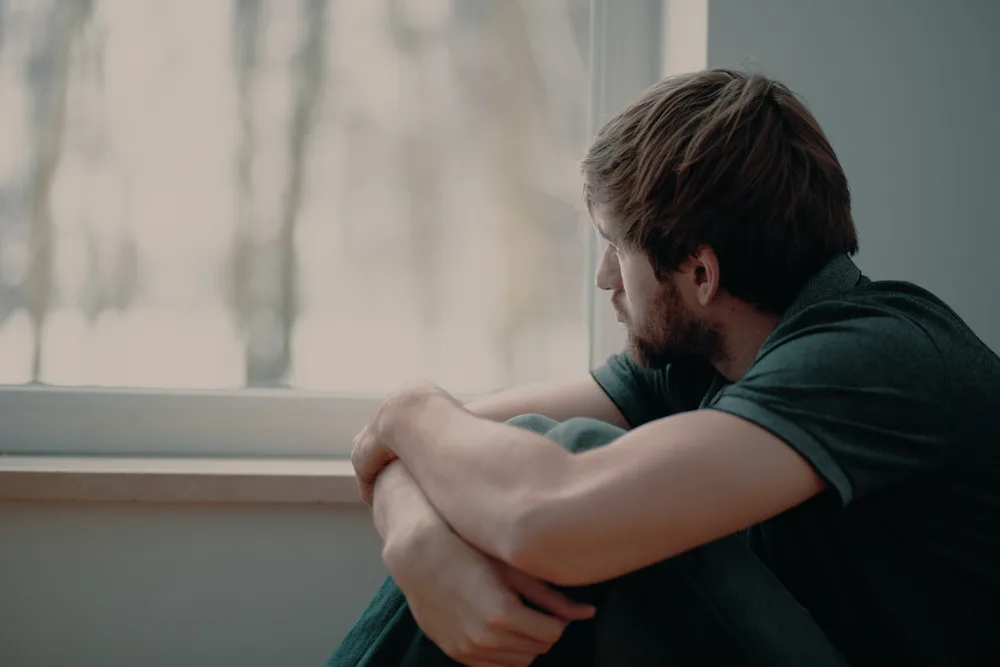Addiction and PTSD often co-occur due to the complex connection between mental health disorders and substance use disorders. The combination of these co-occurring conditions can be overwhelming, leaving many to question the possibility of a normal life.
Fortunately, several rehab centers in Florida provide dual diagnosis programs tailored to PTSD and substance abuse treatment with individualized treatment plans that can help you develop the trauma processing skills you need to recover. These evidence-based therapies help individuals navigate the challenges of co-occurring substance abuse and mental health issues, guiding them toward a lasting recovery.
What Causes PTSD?
Post-traumatic stress disorder or PTSD is most associated with military service trauma, but you could experience other traumatic events that trigger this condition. A painful injury, sexual abuse or a period of intense psychological trauma can all be underlying causes of developing PTSD. To cope with the intense emotions, many afflicted by this mental health disorder resort to substance use as a means of escape.

PTSD Symptoms
If you’ve experienced or witnessed a traumatic event, lingering memories may cause anxiety, behavioral changes and flashbacks of the event. Some people may experience co-occurring substance use disorders, which happen when people with mental illness turn to substances such as drugs and alcohol to self-medicate. Symptoms fall under the following categories:
Mood Symptoms
Individuals with Post-traumatic Stress Disorder might experience sudden and intense mood swings, shifting from feeling fine one moment to being irritable, sad, or overwhelmed the next. These mood fluctuations can seem unpredictable, but should not be confused with bipolar disorder. These mood disturbances can strain relationships, impede daily functioning, and reduce the individual’s overall quality of life.

Reactivity Symptoms
Reactivity is manifested when you experience PTSD symptoms due to environments or activities that remind you of your trauma. People displaying these PTSD symptoms rarely talk about the past event and begin to avoid anything that reminds them of it. This could be places, people, sounds or sights. As more things begin to trigger your anxiety, you may find you become more confined and isolated due to the need to stay where you feel safe. This increases one’s risk of substance use disorders.

Emotional Stress
According to the Substance Abuse and Mental Health Services Administration (SAMHSA), emotional stress is a prominent symptom of Post-traumatic Stress Disorders. This heightened emotional state can make it challenging for individuals to regulate their feelings, leading to reactions that seem exaggerated or out of context to outsiders. This continuous emotional turmoil can severely hinder an individual’s ability to connect with others, handle everyday stresses, and engage in normal daily activities, making it easy to develop lifetime PTSD or drug and alcohol addiction.
Symptoms of emotional stress can include the following:

Flashbacks or Avoidance
Some people experience flashbacks, which are memories that resurface from the events. They may be triggered by things that remind you of what happened or come to you randomly. People with these PTSD symptoms try to avoid anything that might trigger the next flashback. You might develop a substance use disorder as you seek ways to forget about what you’ve experienced.

Post-Traumatic Stress Disorder and Substance Abuse
People who have untreated mental disorders are more likely to acquire a substance abuse disorder. This is called a co-occurring condition, and you might require addiction treatment in addition to therapy and medication to treat the underlying mental health issue.
According to the U.S. Department of Veterans Affairs, three out of four people who’ve experienced trauma in their past turn to drinking as a way of PTSD symptom reduction. If your PTSD diagnosis is due to a single or repeated act of violence, you’re more likely to have an alcohol or drug addiction.
Those who are seeking addiction treatment because they’re experiencing PTSD may need help addressing the traumatic event and addiction separately, as PTSD and addiction are often connected. A dual diagnosis addiction treatment program may help you develop strategies to overcome drug and alcohol abuse while working with a mental health professional to treat your anxiety disorder.
Recovering From Drug Abuse

Behavioral Health Centers Helps Treat PTSD and Addiction
If you or your loved one is suffering from addiction due to PTSD, we can help you return to normal life through our dual diagnosis treatment program. Behavioral Health Centers will work with you and develop an individualized treatment plan for treating PTSD and substance dependence.
Our residential programs help you detox while teaching you strategies to avoid abusing drugs in the future. Our dual diagnosis treatment center connects you with a team of caring medical professionals who understand what you’re going through and can use trauma-focused treatment practices tailored to your specific needs such as group therapy, art therapy, dialectical behavior therapy and more.
During a four-week stay, you’ll have access to meals prepared by a chef, massage therapists, neurobehavioral therapy and plenty of physical and mental activities. We can help you manage both addiction and mental health conditions by connecting you with supporting therapists during and following your stay at our center. This gives you what you need to prevent relapse following treatment.
Every resident is assigned a dedicated case manager who addresses their co-occurring conditions both during and after their stay. By the time you’ve completed the program, you’ll be connected with a private therapist and aftercare program so you receive ongoing care.
If you’re worried about how to pay for your dual diagnosis treatment program, we’re pleased to inform you that we work with most insurance companies and have financing options available.


